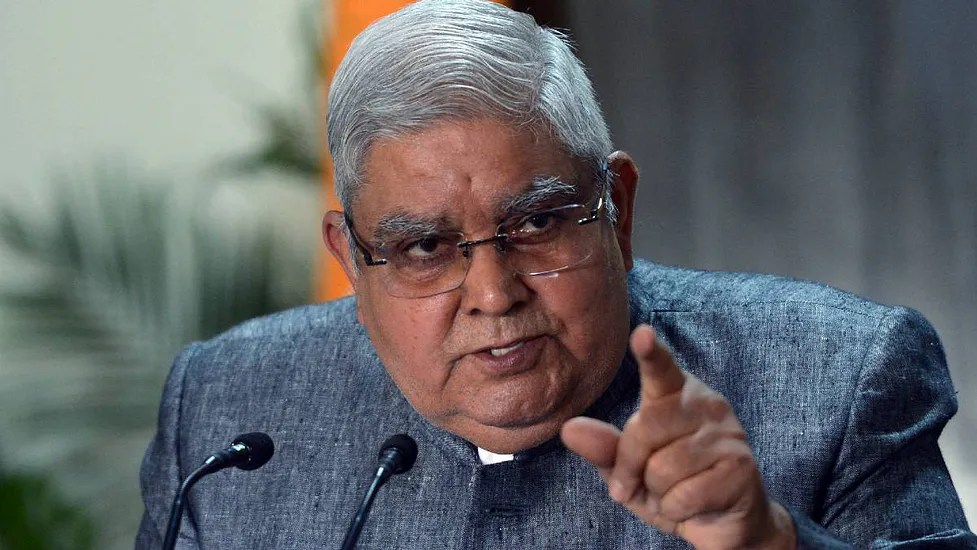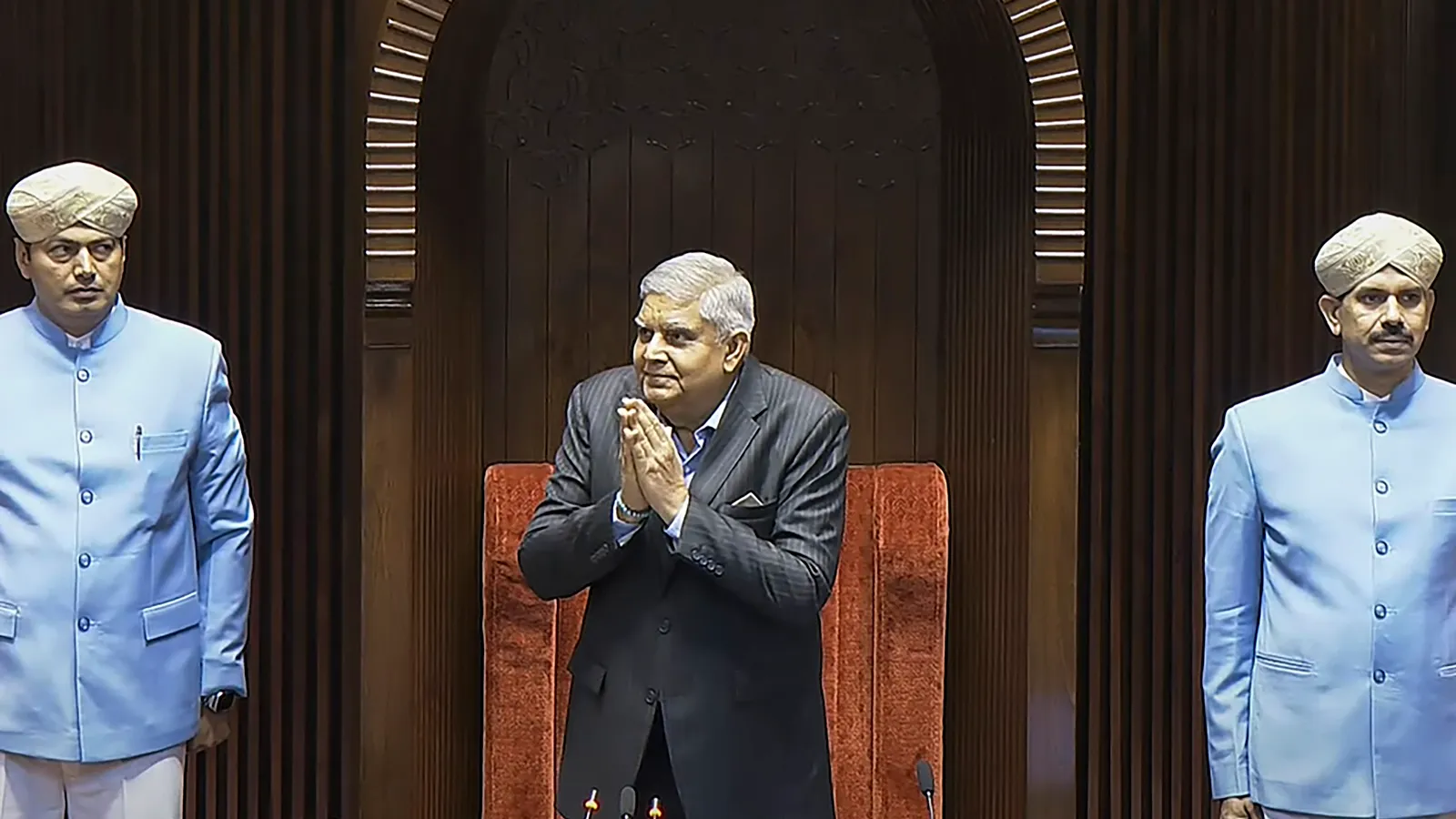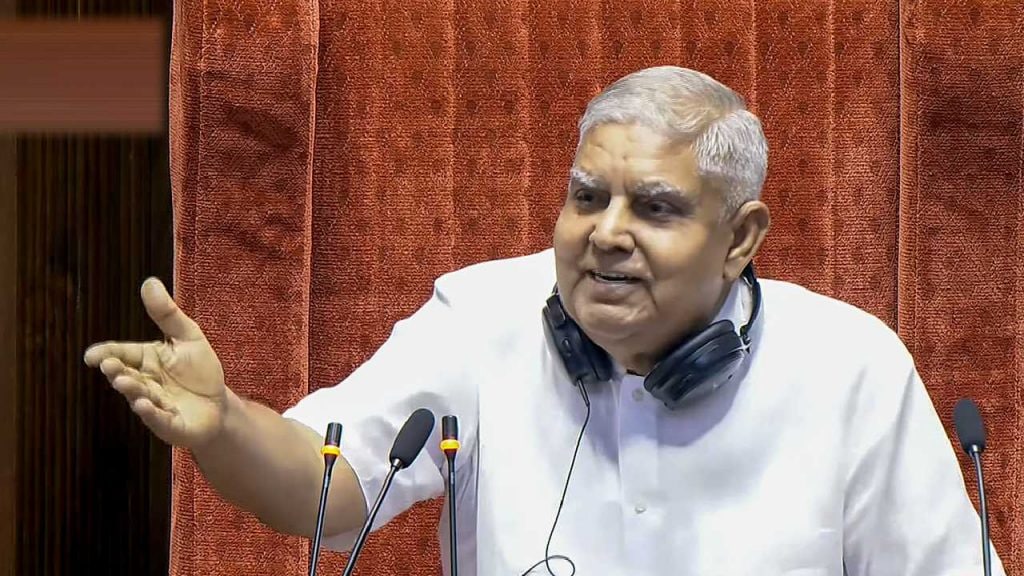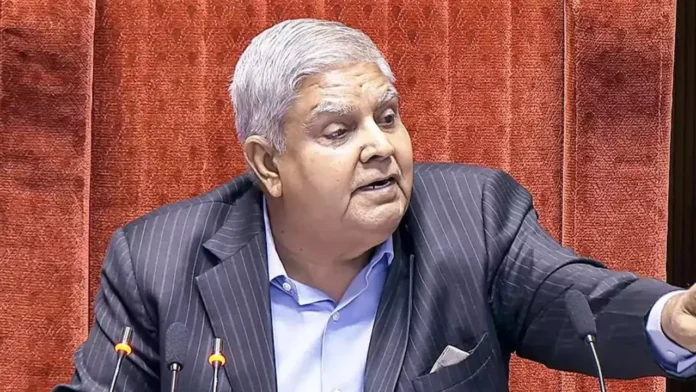No-Confidence Motion Against Rajya Sabha Chairman Jagdeep Dhankhar marks a significant escalation in India’s parliamentary dynamics. On December 10, 2024, the opposition bloc, known as INDIA, submitted a notice to remove Vice President Dhankhar from his role as the Chairman of the Rajya Sabha, accusing him of partisanship in conducting the House’s proceedings.
Allegations of Partisanship
The opposition’s grievances stem from several incidents, notably Dhankhar’s decision to permit discussions initiated by treasury bench members regarding alleged links between the Congress party and billionaire George Soros. This move was perceived as biased, prompting the opposition to act.

Procedural Aspects of the Motion
The process to remove the Rajya Sabha Chairman involves a resolution introduced in the Upper House. For it to pass, it must receive approval from at least 50% plus one of the members present and voting on the day of the vote. If successful, the resolution then requires a simple majority in the Lok Sabha for final acceptance. This procedure is outlined in Articles 67(b), 92, and 100 of the Indian Constitution.
Historical Context
This move is unprecedented in India’s parliamentary history. While there have been instances of no-confidence motions against deputy chairpersons, such as the 2020 attempt against Deputy Chairman Harivansh, a motion against the Rajya Sabha Chairman himself is a first. In the 2020 case, the motion was rejected due to procedural issues, including the requirement of a 14-day notice.

Political Repercussions
The motion has intensified tensions between the opposition and the ruling Bharatiya Janata Party (BJP). The winter session of Parliament has witnessed disruptions, with both sides accusing each other of stalling legislative business. The opposition’s move is seen as a response to what they perceive as the Chairman’s partiality towards the government.
Statements from Key Figures
Congress leader Jairam Ramesh stated that the opposition was compelled to take this step in the “interest of parliamentary democracy.” He emphasized that the decision was painful but necessary due to the Chairman’s conduct.
Future Implications
The motion’s success is uncertain, given the numerical strength of the ruling party in Parliament. However, it underscores the deepening rift between the opposition and the government. The outcome will likely influence future parliamentary proceedings and set a precedent for addressing perceived biases in legislative leadership.
The No-Confidence Motion Against Rajya Sabha Chairman Jagdeep Dhankhar represents a critical juncture in India’s parliamentary history, reflecting the ongoing struggle between maintaining democratic norms and addressing allegations of partisanship.


